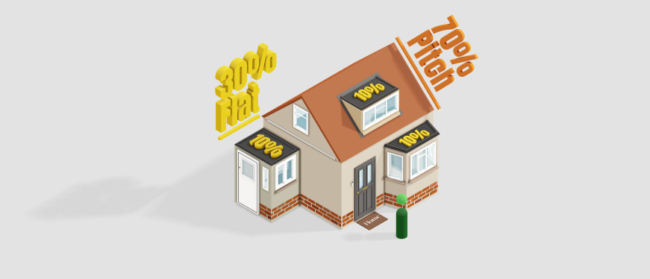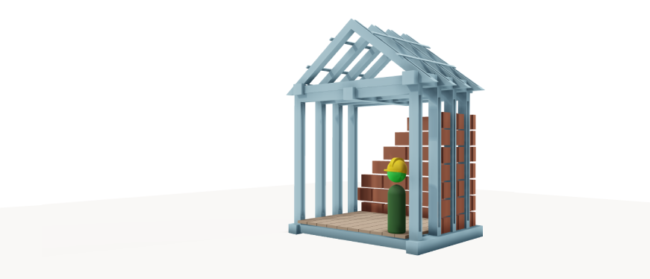
You may be asked what percentage of your roof is flat when completing a home insurance quote. This guide explains how to estimate it accurately.
The short answer is often yes, but not always. The cost depends on a range of factors, including the property’s age, construction quality and the insurer’s appetite for covering non-standard homes. This guide explains what influences premiums, how much extra you might expect to pay, and how to keep your costs under control.
In many cases, timber frame houses are more expensive to insure than standard brick or block properties. Insurers often view them as non-standard construction, which can limit the number of providers willing to offer cover. Fewer options in the market usually means higher premiums.
The main reasons for higher premiums include:
While timber frame properties may attract slightly higher premiums, insurers don’t assess them in isolation.
The final cost depends on several factors:
There is no universal percentage increase, but industry reports and broker experience suggest premiums may be 10–15% higher for timber frame homes compared with standard builds.
However, this isn’t guaranteed. Some modern timber frame homes with strong fire protection measures may not cost more to insure at all. Premiums are always calculated on a case-by-case basis, which is why working with a specialist broker can help you find the most competitive cover.
Timber homes don’t have to mean inflated insurance bills. Homeowners can often reduce premiums by taking a few practical steps:
It’s also worth remembering that timber frame homes have benefits, which is why their popularity continues to rise:
These positives explain why insurers are increasingly open to providing cover for timber properties.
If you own a timber frame house, you’ll want peace of mind that your biggest asset is properly protected. While insurance may be slightly more expensive, it is readily available from specialist providers who understand this type of construction.
At Intelligent Insurance, we help arrange policies that fit your circumstances, whether your home is modern, traditional or falls into the category of Steel and Timber Frame Home Insurance.
Not necessarily. While some mainstream insurers may not cover them, many specialist insurers do. Working with a broker improves your chances of finding the right policy.
No. Some insurers only deal with standard brick or block properties. That’s why it pays to use a specialist.
Sometimes. Lenders may ask for proof that you can obtain suitable insurance before releasing funds.
Yes, most insurers still class them as non-standard, even though construction methods have advanced.

You may be asked what percentage of your roof is flat when completing a home insurance quote. This guide explains how to estimate it accurately.

Steel framed houses are a common UK construction type that can affect surveys, mortgages and insurance.

This guide explains how insurers view wood rot, why it’s excluded from most policies, and what you can do to protect both your property and your insurance cover.